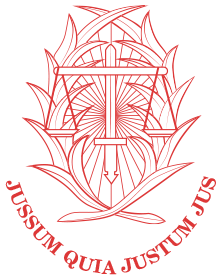RESUMO: Os valores e garantias fundamentais relacionados aos Direitos Humanos são pilares da estrutura constitucional do Estado Brasileiro para garantia existencial da população como um todo. Esses valores e garantias que a princípios deveriam abrigar sobre a tutela normativa e material todos os indivíduos da sociedade brasileira, com a utilização de mecanismos que impossibilitassem a omissão perante os mais vulneráveis, não corresponde ao que se espera do poder público perante as necessidades existências dos mais vulnerais. Partindo da constatação da realidade omissa do poder público, o artigo a seguir tem como objetivo a análise da relação de omissão e promiscuidade da administração pública com o crime organizado nas regiões periféricas, com a utilização pesquisas em tribunais de justiça, artigos científicos, periódicos e livros que tratam da atuação do crime organizado, mais especificamente sobre o Primeiro Comando da Capital (PCC) em São Paulo e no que concerne na existência de tribunais do crime – que constantemente são divulgados pelos diversos setores da mídia, de modo a criar uma quimera autoritarista urbana – que tem como pitar estrutural o medo e a violência existentes nas comunidades, local onde a classe trabalhadora vive e convive com a presença do PCC. Nessas regiões é possível perceber a existência de uma “forma” de poder disciplinar, que está aliada à autotutela do poder de “polícia” do crime organizado. Foi oportuno detectar que a periferia, formada por seres humanos historicamente desprivilegiados, sofre de punições proporcionadas por uma junção do Estado com o crime organizado. A exclusão das periferias do acesso as riquezas nacionais não permitem que os direitos fundamentais sejam obtidos pela população periférica, afinal é neste tipo de contexto que a Teoria da Co-culpabilidade do Estado – onde o Estado por sua omissão estereotipada fabrica o perfil de delinquente e delinquência – desenvolvida por Eugenio Raúl Zaffaroni (1981), ganha forma perante as situações de autodeterminação e criminalidade nessas regiões. Esse artigo buscou elucidar os vetores sintomáticos de degradação das comunidades periféricas, devido as ações e omissões empreendidas pelo Estado e suas consequências. Como também analisar como funciona a estrutura de dominação do trabalhador periférico e os fatores que impossibilitam a revolta generalizada dessa população, visto que seus direitos, esperanças e projeção de igualdade programados pela Constituição Federal de 1988 não se mostram reais até o presente momento.
PALAVRAS-CHAVE: Tribunal do crime. Tribunal do PCC. Autotutela. Junção Estado e Crime.
ABSTRACT:
The fundamental values and guarantees related to Human Rights are pillars of the constitutional structure of the Brazilian State for the existential guarantee of the population as a whole. These values and guarantees that, in principle, all individuals of Brazilian society should have under the normative and material protection, with the use of mechanisms that prevent omission from the most vulnerable, do not correspond to what is expected of the public power in view of the needs of the public. more vulnerable. Starting from the verification of the omitted reality of the public power, the following article aims to analyze the relationship of omission and promiscuity of the public administration with organized crime in the peripheral regions, using research in courts of justice, scientific articles, periodicals and books dealing with the activities of organized crime, more specifically on the First Command of the Capital (PCC) in São Paulo and with regard to the existence of criminal courts — which are constantly disseminated by the various sectors of the media, in order to create a chimera urban authoritarian — which has the structural fear and violence existing in the communities, where the working class lives and lives with the presence of the PCC. In these regions it is possible to perceive the existence of a “form” of disciplinary power, which is coupled with the self-protection of the “police” power of organized crime. It was opportune to detect that the periphery, formed by historically underprivileged human beings, suffers from punishments provided by a combination of the State and organized crime. The exclusion of peripheries from access to national wealth does not allow fundamental rights to be obtained by the peripheral population, after all it is in this type of context that the Theory of Co-culpability of the State — where the State for its stereotyped omission produces the profile of delinquent and delinquency — developed by Eugenio Raúl Zaffaroni (1981), takes shape in the face of situations of self-determination and criminality in these regions. This article sought to elucidate the symptomatic vectors of degradation in peripheral communities, due to the actions and omissions undertaken by the State and their consequences. As well as to analyze how the structure of domination of the peripheral worker works and the factors that prevent the generalized revolt of this population, since their rights, hopes and projection of equality programmed by the Federal Constitution of 1988 have not been real until the present moment.
KEYWORDS: Court of crime. PCC Court. Self-care. Junction State and Crime.
 Loading…
Loading…
